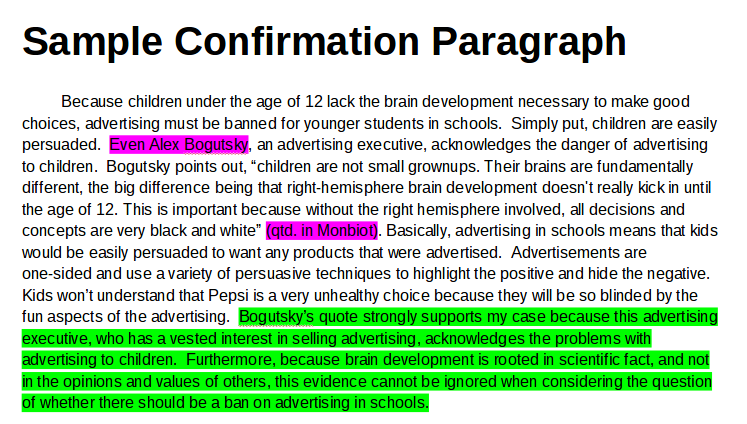
Usage: This can be used to structure an argument, presenting facts clearly one after the other.Įxample: “There are many points in support of this view. Usage: Used when considering two or more arguments at a time.Įxample: “Coupled with the literary evidence, the statistics paint a compelling view of…” 15. Usage: This wording is used to add an extra piece of information, often something that’s in some way more surprising or unexpected than the first piece of information.Įxample: “Not only did Edmund Hillary have the honour of being the first to reach the summit of Everest, but he was also appointed Knight Commander of the Order of the British Empire.” 14. Usage: Use “as well as” instead of “also” or “and”.Įxample: “Scholar A argued that this was due to X, as well as Y.” 13. Another key point to remember is that Blake was writing during the Industrial Revolution, which had a major impact on the world around him.” 12. Usage: Use the phrase “another key point to remember” or “another key fact to remember” to introduce additional facts without using the word “also”.Įxample: “As a Romantic, Blake was a proponent of a closer relationship between humans and nature. Similarly, we have a tendency to react with surprise to the unfamiliar.” 11. Usage: Use “similarly” in the same way as “likewise”.Įxample: “Audiences at the time reacted with shock to Beethoven’s new work, because it was very different to what they were used to. Likewise, Scholar B argues compellingly in favour of this point of view.” 10. Usage: Use “likewise” when you want to talk about something that agrees with what you’ve just mentioned.Įxample: “Scholar A believes X. Usage: This is used in the same way as “moreover” and “furthermore”.Įxample: “What’s more, this isn’t the only evidence that supports this hypothesis.” 9. Usage:This is also generally used at the start of a sentence, to add extra information.Įxample: “Furthermore, there is evidence to suggest that…” 8. Usage: Employ “moreover” at the start of a sentence to add extra information in support of a point you’re making.Įxample: “Moreover, the results of a recent piece of research provide compelling evidence in support of…” 7. Here are some cleverer ways of doing this. Students often make the mistake of using synonyms of “and” each time they want to add further information in support of a point they’re making, or to build an argument. To that end, a new study has been launched that looks at elephant sounds and their possible meanings.”Īdding additional information to support a point Usage: Use “to that end” or “to this end” in a similar way to “in order to” or “so”.Įxample: “Zoologists have long sought to understand how animals communicate with each other. That is to say, they must breathe air.” 5. Usage: “That is” and “that is to say” can be used to add further detail to your explanation, or to be more precise.Įxample: “Whales are mammals. To put it another way, they will die without the sun.” 4. Usage: This phrase is another way of saying “in other words”, and can be used in particularly complex points, when you feel that an alternative way of wording a problem may help the reader achieve a better understanding of its significance.Įxample: “Plants rely on photosynthesis. In other words, they live on the land and in the water.” 3. Usage: Use “in other words” when you want to express something in a different way (more simply), to make it easier to understand, or to emphasise or expand on a point.Įxample: “Frogs are amphibians. Usage: “In order to” can be used to introduce an explanation for the purpose of an argument.Įxample: “In order to understand X, we need first to understand Y.” 2. Let’s start by looking at language for general explanations of complex points. This article is suitable for native English speakers and those who are learning English at Oxford Royale Academy and are just taking their first steps into essay writing.

It’s by no means an exhaustive list, and there will often be other ways of using the words and phrases we describe that we won’t have room to include, but there should be more than enough below to help you make an instant improvement to your essay-writing skills.
#How to introduce a quote explaination how to
In this article, we’re going to equip you with the words and phrases you need to write a top-notch essay, along with examples of how to utilise them.

You could make a great point, but if it’s not intelligently articulated, you almost needn’t have bothered.ĭeveloping the language skills to build an argument and to write persuasively is crucial if you’re to write outstanding essays every time.

To be truly brilliant, an essay needs to utilise the right language.


 0 kommentar(er)
0 kommentar(er)
